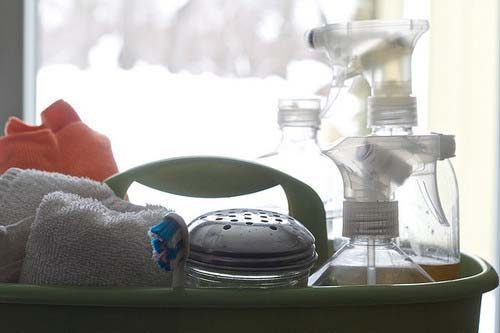
Do you have a live-in maid? Many people in Qatar do. There are at least 40,000 Filipina maids working here, and their numbers are swelled by domestic workers from many other countries including Sri Lanka, Ethiopia and Indonesia.
It’s common practice to employ domestic staff in the Gulf, and many local and expat families choose to take advantage of the opportunity to have an extra pair of hands to help around the home and provide childcare, too. Many working families find that short school and nursery hours mean that wrap-around childcare is vital to sustain busy careers.
There are of course many families here who choose not to employ a housemaid, and some of these have very strong views on the rights and wrongs of employing someone to help clean your house and look after your kids. Some simply state that that it doesn’t feel “right” to have an employee living in their home.
This thorny topic is tackled by Dubai-based Telegraph Expat blogger Annabel Kantaria in her latest post, entitled “What’s it like to have a live-in housemaid?”
The good
She writes in defense of her decision to employ a live-in maid, arguing that there are many solid reasons for employing someone to help her around the house.
“Far more than just scrubbing the floors and making madam’s coffee, for busy mums, the live-helper is an extra pair of hands; she’s the person to whom you can hand the children while you nip out for a forgotten pint of milk; the familiar and caring face who can happily babysit a clingy toddler when you go out.
She’s also another woman in the house…. Women whose husbands travel a lot often find it a comfort just to have another adult around in case of emergencies.”
She also argues that it is usually Westerners who take issue with “having someone strange living in the house”:
“Now I’m the first to admit that ‘to hire or not to hire’ debate is largely a Western issue. Many people who grew up in other parts of the world did so with live-in staff and that’s just how it is – full stop. To them that’s just life: It’s not even worth talking about.”
Not all relationships between employers and domestic workers are as rosy as the one Kantaria describes in her post, however.
The bad
Ongoing wrangling between the Qatari and Philippines governments over a new minimum wage for Filipina maids has brought the salaries of domestic workers into the spotlight over the past few months.
Meanwhile, the UN’s International Labour Organisation reported last month that domestic workers in Qatar work more hours a week than those in any other job in the country.
Some maids choose to run away from their employers and seek help at their embassies, citing exhaustion due to over work.
Thoughts on this? Do you have a maid, and love it? Or do you not have one, and not understand why anyone would?
Credit: Photo courtesy of Chiot’s Run







